Geongyu Lee
KPIs 2024 Challenge: Advancing Glomerular Segmentation from Patch- to Slide-Level
Feb 11, 2025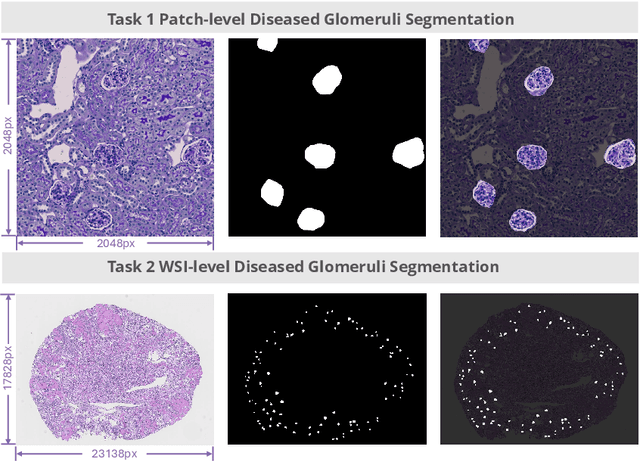

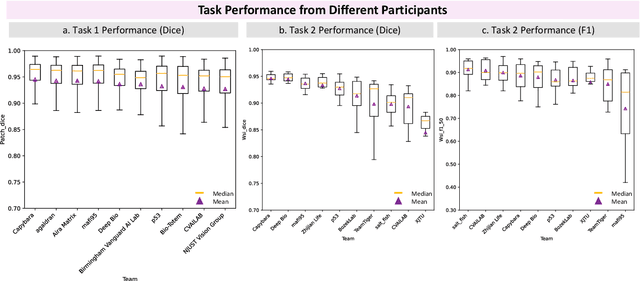
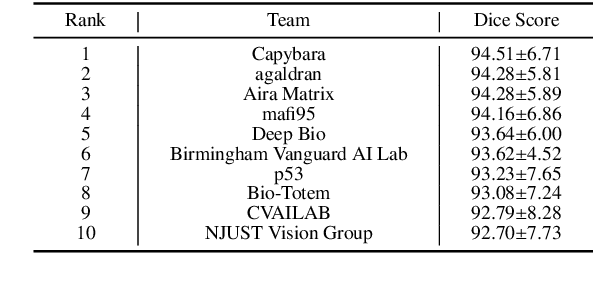
Abstract:Chronic kidney disease (CKD) is a major global health issue, affecting over 10% of the population and causing significant mortality. While kidney biopsy remains the gold standard for CKD diagnosis and treatment, the lack of comprehensive benchmarks for kidney pathology segmentation hinders progress in the field. To address this, we organized the Kidney Pathology Image Segmentation (KPIs) Challenge, introducing a dataset that incorporates preclinical rodent models of CKD with over 10,000 annotated glomeruli from 60+ Periodic Acid Schiff (PAS)-stained whole slide images. The challenge includes two tasks, patch-level segmentation and whole slide image segmentation and detection, evaluated using the Dice Similarity Coefficient (DSC) and F1-score. By encouraging innovative segmentation methods that adapt to diverse CKD models and tissue conditions, the KPIs Challenge aims to advance kidney pathology analysis, establish new benchmarks, and enable precise, large-scale quantification for disease research and diagnosis.
Predicting the risk of early-stage breast cancer recurrence using H\&E-stained tissue images
Jun 10, 2024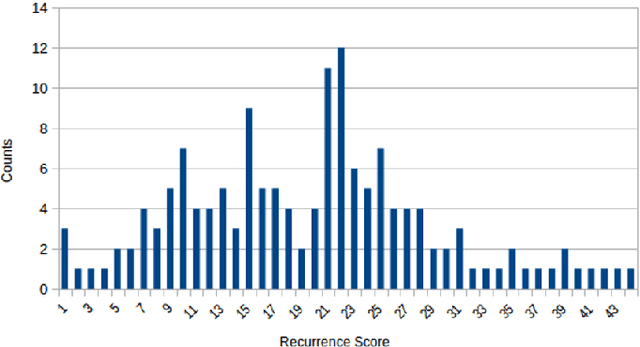
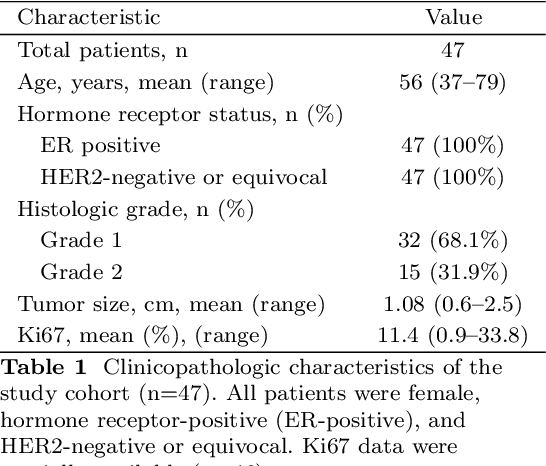
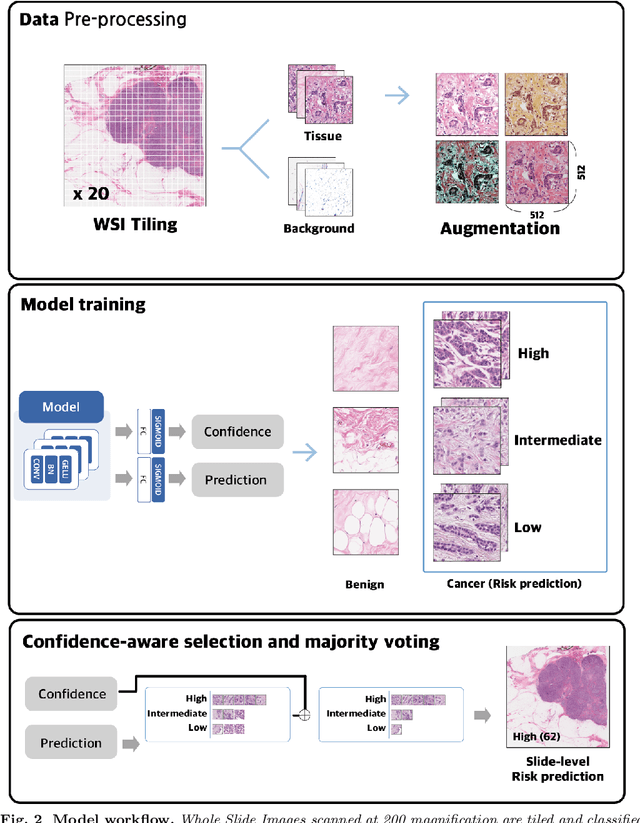
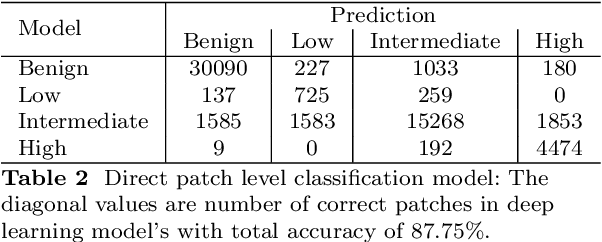
Abstract:Accurate prediction of the likelihood of recurrence is important in the selection of postoperative treatment for patients with early-stage breast cancer. In this study, we investigated whether deep learning algorithms can predict patients' risk of recurrence by analyzing the pathology images of their cancer histology. A total of 125 hematoxylin and eosin stained breast cancer whole slide images labeled with the risk prediction via genomics assays were used, and we obtained sensitivity of 0.857, 0.746, and 0.529 for predicting low, intermediate, and high risk, and specificity of 0.816, 0.803, and 0.972. When compared to the expert pathologist's regional histology grade information, a Pearson's correlation coefficient of 0.61 was obtained. When we checked the model learned through these studies through the class activation map, we found that it actually considered tubule formation and mitotic rate when predicting different risk groups.
 Add to Chrome
Add to Chrome Add to Firefox
Add to Firefox Add to Edge
Add to Edge